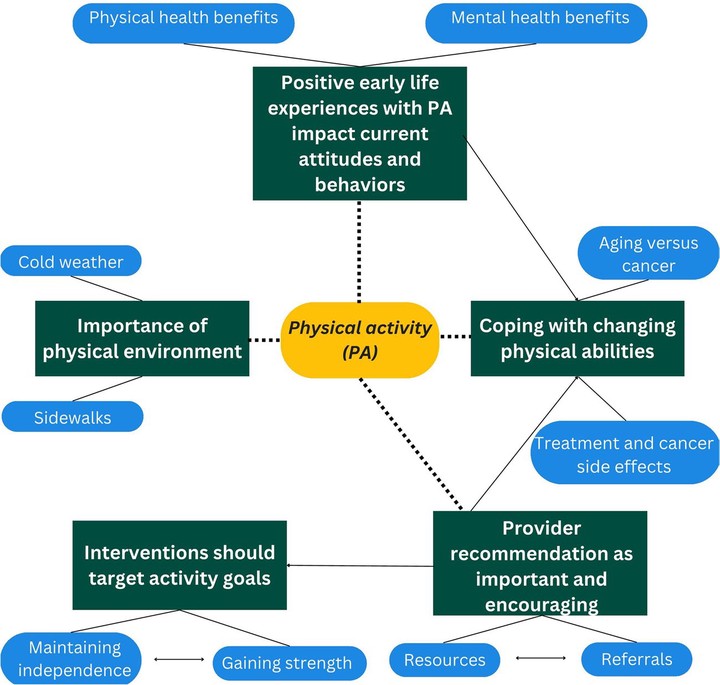'There is no expiration date': a qualitative analysis using the Social Cognitive Theory to identify factors influencing physical activity among adults living with advanced cancer

Abstract
Purpose To identify cognitive, behavioral, environmental, and other factors that influence physical activity in adults with advanced cancer using qualitative, semi-structured interviews. Methods Eighteen semi-structured interviews were conducted with adults living with stage IV breast, prostate, or colorectal cancer; or multiple myeloma recruited from the University of Wisconsin Carbone Cancer Center. We used the Social Cognitive Theory to design the interview guide and a reflexive thematic approach for analysis. Results Participants were 62 years old on average and currently receiving treatment. Despite reporting numerous barriers to physical activity, most participants discussed engaging in some physical activity. Participants reported difficulties coping with changes in physical functioning especially due to fatigue, weakness, neuropathy, and pain. While cold weather was seen as a deterrent for activity, access to sidewalks was a commonly reported feature of neighborhood conduciveness for physical activity. Regardless of current activity levels, adults with advanced cancer were interested in engaging in activities to meet their goals of gaining strength and maintaining independence. Having a conversation with a provider from their cancer care team about physical activity was seen as encouraging for pursuing some activity. Conclusions Adults living with advanced cancer are interested in pursuing activity to gain strength and maintain independence despite reported barriers to physical activity. To ensure patients are encouraged to be active, accessible resources, targeted referrals, and interventions designed to address their goals are critical next steps. Relevance Integrating conversations about physical activity into oncology care for adults living with advanced cancer is an important next step to encourage patients to remain active and help them improve strength and maintain quality of life and independence.